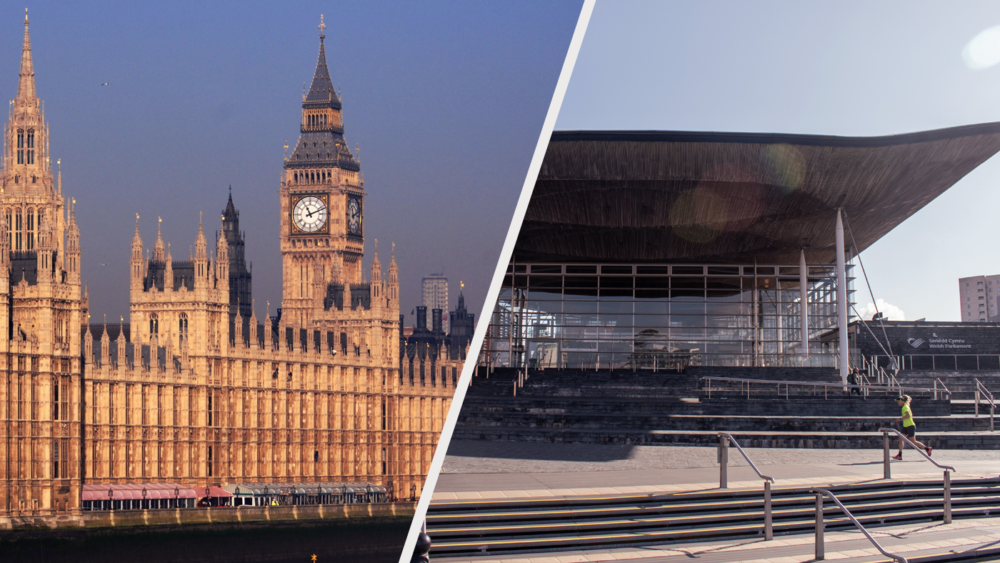General election 2024: how UK Government can help fix the housing crisis in Wales

Housing is a devolved matter in Wales, but while any direct party pledges announced during a general election won’t necessarily see change here, there are still ways the next UK government can act to ensure people live well at home now and into the future. Policy and external affairs manager Bethan Proctor explains
Research has shown time and time again that a good home can help people live healthier, happier, and more prosperous lives. Poor quality, unaffordable and unsuitable housing, meanwhile, compounds existing inequality.
We are currently facing a housing crisis on multiple fronts, exacerbated by high living costs and constraints felt by low-income households. People across the country - including social housing tenants - have struggled with the cost of living for several years now, and households are not only bearing the burden of high costs day to day but also the legacy of years of struggling to make ends meet.
While housing is devolved - and so is under Welsh Government’s remit - some policies affecting incomes and household costs, such as welfare and energy, are controlled by UK Government. The general election is a prime opportunity for all UK political parties to finally commit to the changes needed to solve the country’s cost of living crisis, and ensure that everyone can afford the basic essentials they need to live.
The problem
As it stands, the social security system that people should be able to rely on is inadequate. We need to see action now, and fundamental improvements to help stem the growth of poverty in Wales and across the UK.
Local Housing Allowance
Between April 2020 and April 2023, the Local Housing Allowance (LHA) was frozen, making the private rented sector increasingly unaffordable. In February 2024, there was not a single property available for LHA rates in nearly 75% of local authorities across Wales. The frozen rates are forcing many families and individuals out of the private rental sector and into homelessness services, at a time when provisions are already stretched following the COVID-19 pandemic, placing huge demand on social housing.
While we welcomed the announced increase to LHA rates (which have been uprated to the 30th percentile as of April 2024), this relief will be short-lived due to current plans to refreeze rates from 2025.
Universal Credit
The cost of living crisis has highlighted the inadequacy of Universal Credit in supporting people to pay for basic essentials. Universal Credit policies such as the five-week rent for payment, the two-child limit, and spare room subsidy also exacerbate hardship. Additionally, disproportionate deductions and penalties built into the system contribute to creating a cycle of negative budgets.
As a result, many people - including a large proportion of Welsh social housing tenants - have to make difficult choices between paying for rent, fuel, and food, and are falling into debt.
Welsh benefits, including discretionary housing payments, are increasingly being used as gap funding for UK welfare policies, such as the benefit cap and the removal of the spare room subsidy. Local provisions are also having to adapt to become a safety net for individuals who have fallen through the cracks of the central welfare system.
In Wales, housing associations are allocating significant resources to help their tenants navigate the cost of living crisis. However, they are hitting the limits of the support they can provide.
This piecemeal, emergency response approach is not sustainable. People should be able to rely on a set welfare income.
Energy bills and decarbonisation
Energy bills are still close to double what they were pre-crisis, and energy debt has increased as people struggle to pay. Social housing tenants cite high energy costs as one of the main reasons that they experience financial difficulties. Many tenants have to make the difficult decision to limit heating their homes, which can have a wide-reaching impact on physical health and mental wellbeing.
Housing associations’ investment in energy improvement will be key to enabling the delivery of carbon reduction across all households in the UK. Improving the energy efficiency of our homes will not only reduce carbon emissions but also make fuel bills more affordable and create new skills and jobs, which will boost the local economy. However, decarbonising our housing stock will require financial support from the UK Government if we are to reach net-zero targets.
From our perspective, there are two complimentary routes to resolving both of these issues - but UK Government will need to act swiftly.
The solution
Evidently, there needs to be a more coherent approach between UK and devolved policy, to ensure no one falls between the gaps. In our newly published briefing, we set out our calls for:
a holistic approach to welfare support that prevents homelessness and supports access to the rental market;
a reform of Universal Credit to ensure that claimants can pay for basic essentials as a minimum;
improvements to the Universal Credit system for both claimants and housing associations;
an energy system that protects low-income households;
a government commitment to support the sector to achieve its net zero goals.
Download our briefing paper now to find out what these calls can look like in more detail.


